March 5th - March 12th | Spring Forward with Friends Sale: 20% off select memberships + referral rewards
March 5th - March 12th | Spring Forward with Friends Sale: 20% off select memberships + referral rewards
In 2008, Rob Barber looked up Jennifer Prugh on the International Yoga Therapy website, because his wife Melissa had breast cancer that had metastasized to her brain and cerebral spinal fluid. She had undergone a surgery that had unexpected complications.
After several months recovering in the hospital, Melissa returned home to resume her rehabilitation while Rob was looking for alternative methods of supporting her healing process. She still couldn’t balance on her own, she had no short-term memory and couldn’t leave her bed without help. Melissa and Rob found the in-home occupational therapy to be too clinical and mechanistic in nature and didn’t feel she was improving to the extent that he hoped.
Six years earlier, Jennifer had supported her own father in his final stages of cancer, a significant time that altered the course of her life. After her father died, she left her position as an Associate Professor at a college in Silicon Valley to teach yoga and work with people from all backgrounds and with all kinds of emotional or physical challenges.
Melissa responded well to yoga. As a result, Rob and Melissa were given more time. After she passed, Rob continued to practice yoga with Jennifer as part of the process of healing. In 2010, Rob suggested that he and Jennifer open a yoga studio to give back to the community what he and his wife received from yoga. In 2017, Rob passed away from a rare genetic kidney disease.
Rob and Jennifer’s intention is that when you came to Breathe Together, you have more access to health, innate joy, and a greater capacity for living fully.

Jennifer Prugh
Founder
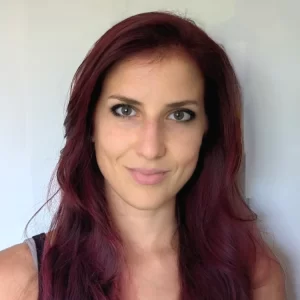
Aurelia Pezzaniti
Chief Financial Officer
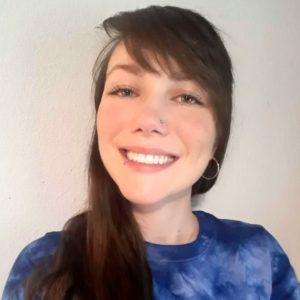
Christy Eicher
Chief Operating Officer

Dominique Garcia
Studio Manager & JOY Program Manager
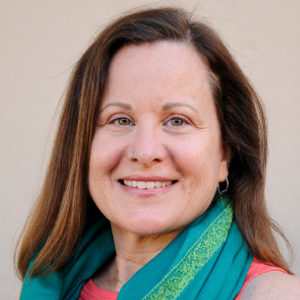
Shelly Dorai-Raj
Retail Manager
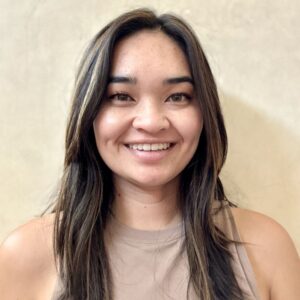
Tiffany Chan
Member Services
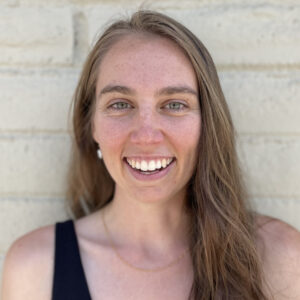
Rachel Maloney
Mandala Tea House Manager

Jane Morimoto
Editor & Member Services Assistant
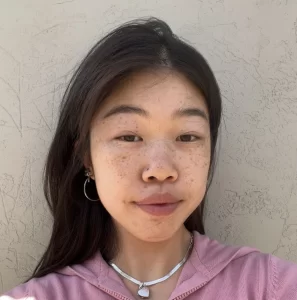
Annie Yu
Mandala Tea House Assistant
This website uses cookies to ensure you get the best experience on our website. Read our Privacy Policy.
In August of 2007 I was in a hospital room with my wife. She was struggling to breathe. Her blood oxygen saturation had dropped and she tried to cough out the fluid in her lungs, but was too weak. The first time this happened I thought she was going to die. This time I knew enough to roll her onto her side and turn up the airflow on her oxygen mask. I don’t know if she was able to hear me, but I would rub her back and urge her to breathe. “Just one more breath, just breathe.” It is at those moments in our lives when things are crystal clear. The peripheral junk we carry around evaporates and we see the truth of things. My wife did eventually die a month later in our family room. She died peacefully. It was only then that I found the time to actually process what had happened over the previous year. I am still processing it three years later.
A year earlier, Melissa went in for an MRI. She was having bad headaches. She had just spent the previous year fighting breast cancer. She endured all the standard treatments: chemo, radiation, and surgery. Her hair was starting to come back. It was fine and soft like baby’s hair. She was going to Pilate’s classes and she had applied for a management position at her company. She was a talented engineer who did not believe in sit-on-the-beach vacations and planned to visit all of the continents in her lifetime. Cancer was a blow, but by no means a life changer for her. She intended to beat it and then maybe take a nice vacation. The MRI results changed everything. Cancer had metastasized to her brain.
Within the week she was in surgery to have a tumor removed from her cerebellum. I remember the last thing she said to me before she went into the operating room: “I reminded our friends that you don’t like to be cheered up.” We both laughed because she was absolutely right, I don’t remember even telling her that. She also knew how nervous I was about her surgery and she was worried about me. I cherish that memory because that was the last time I would ever speak to that Melissa. She would never be the same again.
Melissa barely survived that operation. At two hours into recovery, the blood started pooling in her brain. First, she was in pain and couldn’t speak, then her eyes lost focus and alarms started going off. The nurses were running towards us and I knew this was bad. They took her back into surgery and removed the back of her skull to relieve the pressure from her swelling brain. The next time I saw her she was in intensive care with a breathing tube down her throat. She was comatose. They called it a venous infarction. The blood is prevented from draining out of the head back to the heart. The pressure builds. The brain shuts down. Her surgeon told me she could die that night and even if she survived it was not clear what the extent of her brain damage would be.
There is a ritual that takes place every hour in the Neurology Intensive Care wing. The nurse assigned to a single patient comes into the room and checks the numbers, checks the level of the head relative to the rest of the body and performs a test. The nurse sticks her thumbnail into the bridge of the nose at the eye socket. For a conscious person, this would hurt. I’m certain that it hurt my wife as well. When the brain is functioning, the patient will pull in her hands and arms in an attempt to protect herself. When the brain is turned off, she will do the opposite: stretch out her arms and body. When the nurse demonstrated the movement to me, it looked like an act of surrender. Every hour for days, Melissa did neither of these movements. It was like she was trying to decide whether to stay or fly. I wasn’t allowed to stay over night but I refused to leave and the nurses eventually left me alone. I had two chairs and a blanket and I stayed there a few feet away watching the vitals pulsing and waiting for the next test. Time moved very slowly those first few nights. It felt like I was counting every pulse on the EKG and every mechanical breath on the respirator.
Her sister came every day. Her sister and her friends would talk to her and I knew I was supposed to do the same, but I couldn’t. I didn’t know what to say. I was just frozen, watching. I did massage her feet because I knew how much she liked it and I wanted her to feel what I couldn’t say. This is what I was doing on the third or fourth day when the nurse came in to do the test. This time she moved, but it was the wrong way. Her arms stretched out and I had this surreal feeling of an angel starting to fly. The nurse consoled me. He would do another test in an hour. It was not over yet. I just sat there with my head on her feet and thought about the day we met. I thought about the kind of person she was, the way she lived, and for the first time I started talking. I told her what I admired about her and how strong she was. I told her all the funny stories of our life together. I told her I needed her to come back. Another hour went by and another test. This time she pulled her hands in. I almost felt a little foolish at that moment. I remember thinking “of course she would come back, she’s Melissa” and then I fell asleep.
By the time Melissa was ready to leave the neuro ward, she was able to speak but rarely did. She could not tolerate noise, light or conversation. She was agitated most of the time. She had endured several more surgeries since that first one, including the installation of a special device in the top of her skull to facilitate chemotherapy of the cerebral spinal fluid. She was also implanted with a tube to drain fluid from the brain and a PEG tube in her stomach through which she was fed. Two and a half months in the hospital had also taken its toll. She had developed a curvature in her spine and was unable to lie flat. She was frail and exhausted. Sometimes there would be rare lucid moments when she could speak and understand me. Most times she would be lost in her own world. In spite of this there was a magic time in the morning when I could get her out of bed to sit in a chair for her foot massage. This became my carrot to get her up.
We started the ritual of brushing her teeth and applying Chap Stick. There would be the occasional conversation, which was nothing short of pure joy for me. She was ready to leave the hospital and I couldn’t be happier to get her out of there. Her two weeks in rehab were luxurious in comparison to the neuro ward. She was allowed to wear her own clothes and the nurses for the first time respected her need to sleep through the night without being poked and prodded. Instead of being scorned for spending nights in her room, I was welcomed as part of her get-well team. I could see positive changes in her daily. The damage to her brain made swallowing very difficult and she had to relearn how to do it, but after two weeks she was talking and eating whole food. Her short-term memory was still completely gone. She would not remember anything that happened even 5 minutes earlier. She also had no ability to balance and walk on her own. Nevertheless, she was quickly becoming human again. After two weeks, the insurance company told us she had to go home and the reality of taking care of Melissa for the long term started to sink in.
I first met Jennifer Prugh in February of 2007. I didn’t know that there was such a thing as yoga therapy, but I thought that yoga might be worth a try. In-home rehab wasn’t working and Melissa’s progress was slowing down. She could not walk on her own. At night she often tried to get up and would fall down. She didn’t even remember that she couldn’t stand up on her own. She was prone to rages (completely uncharacteristic of the old Melissa) and was often confused about where she was. She wanted to sleep 20 hours a day and it was a struggle to get her up. My wife needed balance and clarity of mind. I googled “yoga” and “therapy” and then I found Jennifer. She was an artist and a professor and she taught yoga. I called her and we talked about Melissa’s case. She asked me for a picture. A few days later, she said she would work with us.
Melissa’s first day of yoga did not start out the way most people start practicing yoga. She was in bed, she would have been very happy if we had all just gone away. But for Jenn, Melissa pulled it together and they started working. Jenn would say, “How does this feel?” Melissa would say, “Awful” and Jenn would say, “Good.” The next morning I sat on the edge of the bed and asked my wife if she wanted to do some yoga with me. She said “no.” So I said, “well I’ll just go ahead on my own then” and I started Jennifer’ s homework routine of spreading my toes, twists and a kind of sitting-on-the-bed eagle pose Jenn had taught us the day before. After a few minutes Melissa said, “You’re not doing it right.” I said “really? Can you show me?” Slowly she sat up and we practiced together in the early morning light. It was the most peace I had felt in a very long time.
Jennifer was not a softy. She pushed Melissa. She saw the energetic driven woman that my wife was before her illness and she had a way of pulling that out of her. Within a week Melissa got out of bed and did shoulder stands on the floor. Within two weeks we were downstairs and my living room became the family yoga studio. I bought mats for my sister-in-law and even my mother-in-law and we practiced together. Sometimes Melissa would try to get out of it. “I’ll just observe today,” she would say. Jenn would just laugh and say, “nice try, OK let’s go.” Jennifer would always keep a hand on Melissa to keep her from falling, but little by little she would let go. I barely noticed the change in her balance until one day Mel got up and walked across the living room unassisted. I was stunned. After two months Mel was able to move around the house without help. Her eating was better and her meltdowns were becoming less frequent. Her sister started taking her out to Trader Joes (her traditional food shopping place) just for the practice of walking the aisles with her cart. One day we were at the oil change place when Melissa asked me about the front left tire. I told her that we were just there to get the oil changed and there was nothing wrong with the tires. Then she reminded me that our friend, who had driven our car the week before, commented that the front left tire was soft. She actually remembered his comment from a week ago (the one I had forgotten.) Her memory was coming back! Before long she adopted a system of writing notes on post-its for herself. These were mostly to-dos for me. Melissa was definitely coming back.
Jennifer wasn’t just working on my wife. I remember coming home from work during lunch to do yoga with them and feeling completely overwhelmed by the job of caring for my wife and my fear of losing her (which I knew was inevitable.) Those hours with Jenn gave me time to breathe. I remember going back to work smiling in spite of everything wrong in my world. After four months Melissa had enough mental focus to attend a Stern Grove concert with me. We watched the SF Opera and we even went to a movie afterward. It was a day of pure joy. The event I will remember most though was a simple one. One morning as I was kissing my wife goodbye on my way to work she looked at me from bed and said, “You need a new belt.” She often said strange things that year so I didn’t think much of it. That night I came home and she was sitting on the couch. She turned to me, smiled and said, “Hi, I bought you some belts.” In fact, she had bought six of them. Some were way too big, some were too small, but there were a couple that fit perfectly. I always used to hate trying on clothes for my wife. “These are great, I’ll be right back,” I said. Then I went into the bathroom and cried. That day, I was the happiest man on earth.
I am convinced that Melissa would have continued to improve if her cancer had not stopped her. As Jennifer opened up her body, her mind was reconnecting and even her old personality was starting to shine through. Eventually the cancer, which had spread to her spine, paralyzed her and I was back to keeping vigil next to her bed. This time her bed would be at home in the makeshift hospital/family room I had made for her. Jennifer continued to visit us even though there was no longer any possibility of Melissa doing yoga. She did, however, always make Melissa smile. In Melissa’s final weeks, Jennifer said that when I was ready, I needed to come to her studio and start the work of caring for myself. Lack of sleep, stress and poor diet had left me a mess, but my biggest problem was my mental state after Melissa died. I never panicked or lost my cool in caring for Melissa, but after she died, those sharp painful memories plagued me. There were many nights when I woke up from nightmares. Programmed to wake up and care for Melissa at night, I never slept more than a few hours at a time. Sometimes I woke up in a fright thinking Melissa had fallen out of bed or wandered off only to realize she was gone for good. After three weeks I made an appointment with Jenn. We sat on our mats facing each other and she asked me how I was doing. All I could do was cry. So for our first yoga session, we just cried together. In our second session, I worked and sweated. At the end of the hour we sat on our mats and Jenn told me to breathe.
It was the worst and best year of my life. When Melissa decided to stay with me a little longer back in that intensive care unit, that was a gift. Jennifer made that gift even more special by bringing back the beautiful person Melissa was. In that year, I learned what it feels like to be dehumanized and what it feels like to be human. The world we live in can be dehumanizing, but we all deserve to feel human, to feel alive and to live with joy. Jennifer helped Melissa and I to feel human and live with joy in the face of despair. I firmly believe we all yearn to live this way.
I know my story is not unique and that everyone experiences pain and tragedy in their lives. At the very least we feel the daily dehumanizing stress of living in the modern world. Jennifer and I set out to build a space and a community where we can all feel our humanity. It will be a place for the practice of compassion, both giving and receiving. If nothing else it will be a place to “breathe, just breathe.”
When I first met Melissa she was curled on her side on her bed. She wore a beanie on her head, was frail and her speech was impaired. She had been through a journey that none of us ever wants to take. When I looked at her I also saw a distance in her eyes that came from a surgery to her brain that had not gone well. But I also saw intelligence, humor, and an unusual determination. Our first session was spent on her bed. I asked questions about how she could move and she would try something simple like bending her fingers. I wanted to understand what she could do physically and how she would emotionally respond to what I had asked her to do. I wanted to build some evidence of success and trust between us so she would feel comfortable trying more of what I would ask of her.
As Rob walked me to the door, I asked to see a picture of Melissa before she had cancer. He showed me a strong and beautiful Chinese woman in her thirties, an engineer, an avid skier, and voracious reader who looked like anything she wanted to accomplish was possible. I wanted to see the “before cancer photo” because I wanted to understand who I was talking to. In all of our sessions, when I spoke with Melissa, I spoke to the Melissa that I saw in that picture because that is what I would want from someone working with me if I was in her situation.
We worked together two and often three times a week for eight months. We began in the bed and slowly we moved onto the carpet beneath the bed. Her first real yoga posture was a supported shoulder stand with her feet against the bed ledge, which would seem odd given the state of her body. She enjoyed having her legs up in the air and her body seemed perfectly shaped for shoulder stand. We began on the floor and took one posture at a time over several weeks until she could stand, and then finally, walk without help.
After about a month she could practice yoga downstairs in the living room with her sister and her mother who only spoke Chinese. Rob came home from work during his lunch hour and many days the four of us practiced on the living room carpet on our mats, just moving our bodies. Sometimes her friends would come to visit and they all did yoga with us, some for the very first time.
She would often suggest that we not do a posture and I would calmly tell her we were going to do it, despite her resistance. I knew the value of the practice and I understood myself. I understand that sometimes I don’t want to do something that will be good for me because it will bring up fear or sadness or anger. I would often ask her how she felt and she would say ‘awful.’ In the beginning she didn’t recognize this as a joke but as she regained some of her short-term memory in the months we worked together, we would laugh together about how “awful” she felt.
The choices I made about how to support her in moving her body were based on the premise that we are all trying to achieve balance, mentally, spiritually, and physically. We did a lot of balance postures to help her concentration. We worked in the direction her spine was leaning and then its opposite direction to regain mobility. Because I knew that the cancer cells remained in her cerebral spinal fluid after the second surgery, I wanted our time together on the mat to be joyful. I wanted our time on the mat with her family to alleviate their stress and bring enjoyment that comes from simply being together. Ironically, we laughed a lot while down on the floor together even though we didn’t speak the same language, just human beings doing the best we could in the most difficult of situations.
When I left their house, I often cried. Because as I was saying hello every day to a person I was getting to know better, I was always saying goodbye. But in essence, this is how life is. We are saying hello and goodbye and we often pretend that the goodbye doesn’t exist. But deep down we all know better. To do yoga therapeutics well in these kinds of difficult situations has required that I feel what it’s like to be someone else inside the challenge they are attempting to alleviate, whether its cancer, addiction, or a back surgery, whether its anxiety or depression. I can’t be convinced that I truly understand what it’s like to be the person I’m working with, but I attempt to. Do I feel emotions that are hard to feel? Yes. But I can’t imagine trying to alleviate another’s suffering while putting some sort of emotional wall around myself. Practicing yoga and meditation is a practice of being present so that when we’re faced with real challenges, we are able to show up and effectively respond to any situation to the best of our ability. It’s as if my little concerns for myself just disappear. I have found no greater relief and joy than to be required to be present to someone else in such a way that I can be a support, no matter what they are going through in life.
We were seeing noticeable progress with each session. Within several months she was taking walks around the block, shopping for clothing for Rob, and going to a concert with him at Stern Grove. There was nearly a sense of normalcy where the urgency of the situation seemed far enough away that we could practically take life for granted. Then one day Melissa began feeling pain in her spine. The cancer had spread to her bones and in a very short time her body began to systematically shut down from the ground up. Rob took a month off of work, put a hospital bed in the kitchen, and single-handedly cared for her in that final month. Our yoga practice went from holding her hand as she balanced in tree pose to holding her hand while she lay in bed and simply breathing together. Watching Rob being forced to let go was pure heart break. At that time I thought of the distinction that the great Sufi poet, Rumi has made, “the heart breaking or the heart breaking open.” I wondered how his heart could possibly break open, after such a heart break.
Rob is an engineer. He also plays the piano, loves poetry, and would call himself a “foodie.” He has a great eye and speaks eloquently. He has known what it’s like to love someone completely and every action he took during the time Melissa was struggling was an expression of such a great love, the kind we all dream of for ourselves. Even though he is a few years younger than me, there were ways in which he reminded me of my father, my greatest mentor. One day I came over to the house and we sat with Melissa’s hospital bed between us when she was no longer talking. He and I talked for several hours about everything. I had a great respect for his ability to continue to show up in the face of tragedy and he respected me for coming around even after my work was really done. I told him I would give him three weeks to grieve and then we would need to get back to work with the yoga. There would be much work to do.
Three weeks after she died I called him and he came to my home studio. Yoga therapeutics includes postures, breathing, meditation and often talking. Rob would talk while we moved and sometimes he would cry. We wrung out his body from the inside out and when he left, he was lighter and more able to cope with what was in front of him. In June of 2008 Rob came to Italy on what was to become the first of three “Eat, Pray, Love yoga retreats” to Italy, India, and Bali. He met people on that retreat who are now life-long friends, his practice deepened, and he regained his enthusiasm. We continued to work together and in March 2009 Rob came on the Bali retreat. At the end of that retreat Rob asked me if I would like to open a studio so we could give back what had been given to Melissa, her family and friends, and Rob.
You know the phrase, “be careful for what you wish for because you just might get it?” This studio is a living testament to the fact that dreams can come true. But it comes with a great responsibility. I have been absolutely blessed by so many enthusiastic, successful people who are so supportive of this studio, staff, teachers, and people who have genuinely devoted their lives to making life a little better for others. It is our intention that your time at Breathe Together will enable you to be even more effective at positively contributing to the people’s whose lives you benefit. Heartbreak in this life is inevitable for all of us. But out of the most difficult circumstances, amazing things can happen.
Please let me know any way in which I can be of support.